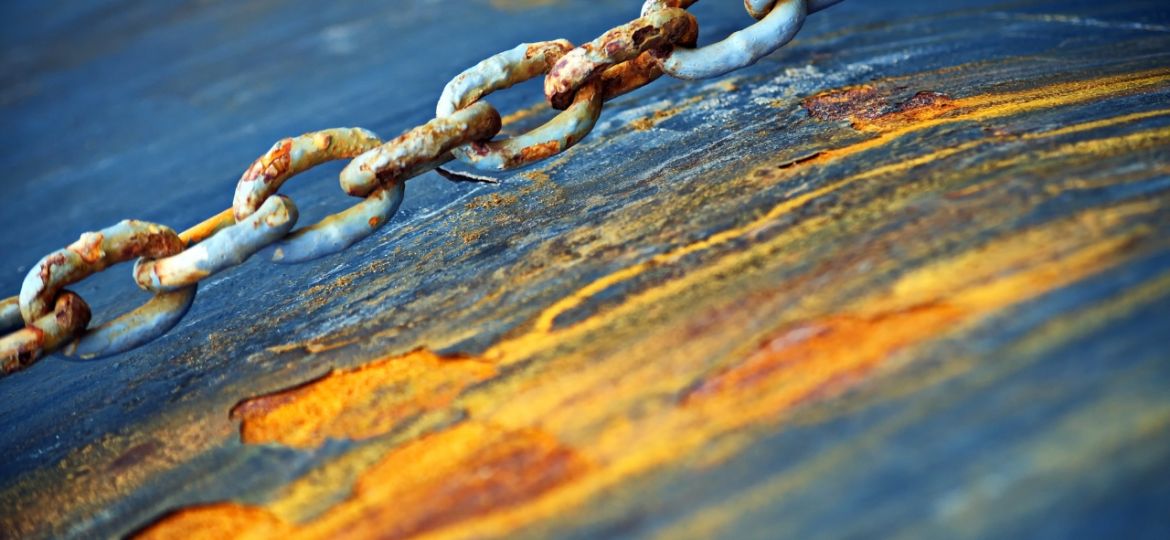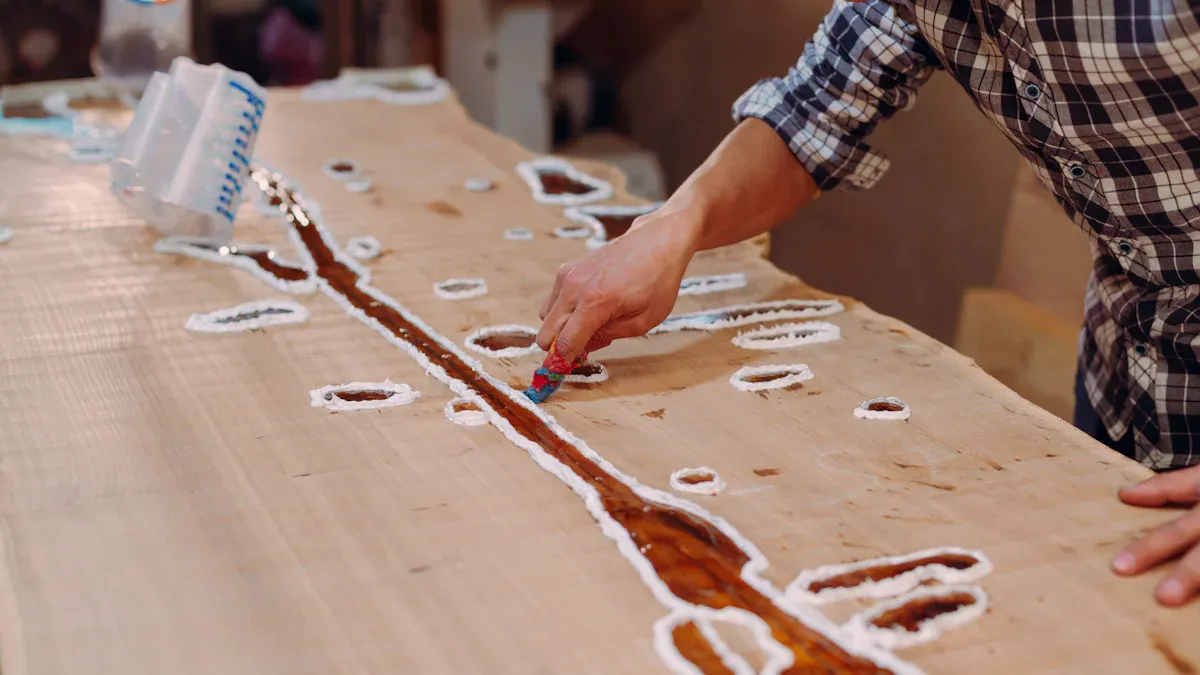
Structural Resin acts like a tough shield. It stops cracks and corrosion in marine and aerospace places. Advanced epoxy resin systems and graphene formulas make strong bonds. These bonds protect surfaces from harm. You use lightweight composites for strength. They help things last longer in rough conditions.
When you choose these materials, you help vessels and aircraft last longer.
Structural Resin Overview
Types and Composition
Structural resin comes in different types. The most common ones are epoxy resin systems and graphene blends. These materials mix polymers and hardeners together. When mixed, they make a strong and tough material. Some versions have fibers inside. These fibers can be glass, carbon, or aramid. They help make the resin even stronger.
- Epoxy resin systems create strong bonds. They work well for boats and planes.
- Graphene-based resins are extra tough. They help stop cracks and corrosion.
- Fiber-reinforced resins make light but strong composites. These keep things sturdy and not heavy.
Tip: Picking the right structural resin helps your project last longer. It also helps it work better in tough places.
Role in High-Performance Sectors
Structural resin is used in many important industries. In marine jobs, it protects boats from saltwater and wetness. This stops corrosion and keeps boats safe. In aerospace, people use light composites made with structural resin. These materials make planes lighter but still strong.
- Lighter weight means better fuel use.
- There are fewer cracks and less damage.
- You save time and money on fixing things.
Structural resin helps you build safer and longer-lasting vehicles and buildings. It can handle tough conditions and helps stop problems like corrosion and cracking.
Crack Prevention

Mechanical Strength
You need strong materials to keep boats and planes safe. Structural resin gives you this strength. When you use epoxy resin systems, you get high-strength bonding. This bonding holds parts together tightly. It stops cracks from starting. If a crack does appear, the resin slows it down. The material spreads out the force, so one spot does not take all the stress.
Graphene epoxy resins make this even better. They add more toughness and rigidity. You can trust these resins to handle heavy loads. In marine and aerospace work, you want materials that do not break easily. Structural resin helps you build lightweight composites that stay strong. These composites keep your vessel or aircraft safe, even when you face rough waves or strong winds.
Note: High toughness and rigidity mean your project can last longer without damage.
Flexibility and Impact Resistance
You also need materials that can bend a little without breaking. Structural resin gives you this flexibility. When you use lightweight composites, you get a mix of strength and bend. This helps your boat or plane handle bumps and hits. The resin absorbs the energy from impacts. It spreads the force across the surface.
Epoxy resin systems work well because they do not crack under sudden stress. They keep their shape and protect the structure. If you use graphene-based resins, you get even more impact resistance. These resins help stop cracks from growing. They keep your project safe from damage caused by drops, hits, or pressure changes.
- Structural resin helps you avoid costly repairs.
- You get better safety for people and equipment.
- Your project stays strong in tough conditions.
Tip: Choose the right resin for your needs. This helps you prevent cracks and keep your structure safe.
Corrosion Resistance

Chemical and Moisture Barriers
Building things for the sea or sky is hard. Water, salt, and chemicals can hurt your work. Structural resin helps protect against these problems. Epoxy resin systems make a strong shield. This shield blocks water and chemicals. It keeps inside parts safe from rust and decay.
Fiber-reinforced and nanocomposite resins do even more. They fill tiny cracks and spaces. This stops moisture from getting inside. You can trust these materials to keep boats and planes safe. They help you avoid expensive repairs from corrosion.
Tip: Use structural resin to shield your project from water and chemicals if you want it to last longer.
Performance in Harsh Environments
You need materials that can handle tough places. Saltwater, heat, and cold can break down many things. Structural resin stands up to these harsh conditions. Lightweight composites made with advanced resins do not rust or weaken easily. They stay strong even when the weather changes quickly.
Many real projects show how well these materials work. Shipbuilders use fiber-reinforced resins to coat hulls. These coatings stop saltwater from hurting the metal. In aerospace, engineers use epoxy resin systems to protect airplane parts. These parts stay strong and safe after years of flying through rain, snow, and sun.
- Your crew and passengers are safer.
- Your equipment lasts longer and needs fewer repairs.
- You save money by stopping corrosion early.
Note: Choosing structural resin helps your project survive in the toughest places on earth.
Structural Resin vs. Traditional Materials
Durability and Longevity
When you look at structural resin and metal, you notice big changes in how long things last. Structural resin gives strong protection from damage. Epoxy resin systems make parts stick together well. This helps parts stay together when things get heavy or hit hard. Composites made with resin do not rust like metal. You do not have to worry about corrosion that makes metal break faster.
Structural resin stays tough in rough places. Boats and planes made with resin keep their shape for years. You do not see cracks getting bigger or surfaces falling apart. The resin helps your project handle storms, saltwater, and hot or cold weather. You get more years of safe use and fewer surprises from things breaking.
Tip: Pick structural resin if you want your project to last longer and stay strong in hard places.
Maintenance Benefits
You spend less time and money fixing things with structural resin. Metal needs lots of checks for rust and cracks. You often have to paint, patch, or swap out metal parts. Epoxy resin systems and composites help you skip many of these problems. The resin keeps water and chemicals out, so you do not see rust or decay.
It is easier to clean and check your project. The surfaces stay smooth and strong. You do not need special tools or treatments. This helps you save money on repairs and keeps your equipment working longer. Your crew is safer, and your project works better.
- Less fixing means more time for work.
- Fewer repairs help you save money.
- Strong materials keep your project safe.
Note: Using structural resin helps you spend less on upkeep and keeps your project running well.
Applications and Success Stories
Notable Projects
There are many real-life examples of advanced materials helping. Shipbuilders use epoxy resin systems on hulls and decks. These coatings help ships fight corrosion from saltwater. Ships need fewer repairs and last longer. In aerospace, engineers use lightweight composites for wings and fuselages. These parts stay strong and light. Planes can fly farther and use less fuel.
Bridge builders use high-strength bonding with resin for joints. This keeps bridges safe in bad weather. 🚢✈️ These projects last longer and need less fixing. Using these materials helps protect important structures from harm.
Tip: Find projects that use advanced resins. You will see better results and safer equipment.
Industry Feedback
People in marine and aerospace jobs like these materials. Maintenance crews say lightweight composites make checks easier. You spend less time looking for cracks or corrosion. Engineers say epoxy resin systems help parts stay together under heavy loads. Pilots and ship captains trust these materials to keep them safe.
Using Structural Resin means fewer breakdowns. Companies save money on repairs and replacements. Many experts say to use these materials for new builds and upgrades. You see the benefits in safety, strength, and saving money.
Note: When you pick advanced resins, you help your projects last longer.
You can see how Structural Resin keeps things safe from cracks and corrosion. Advanced epoxy resin systems and graphene blends make strong bonds. They also help create lightweight composites. These materials help your projects last longer. You do not need to fix them as often. When you pick these solutions, your equipment is safer and stronger for the future. 🚀

